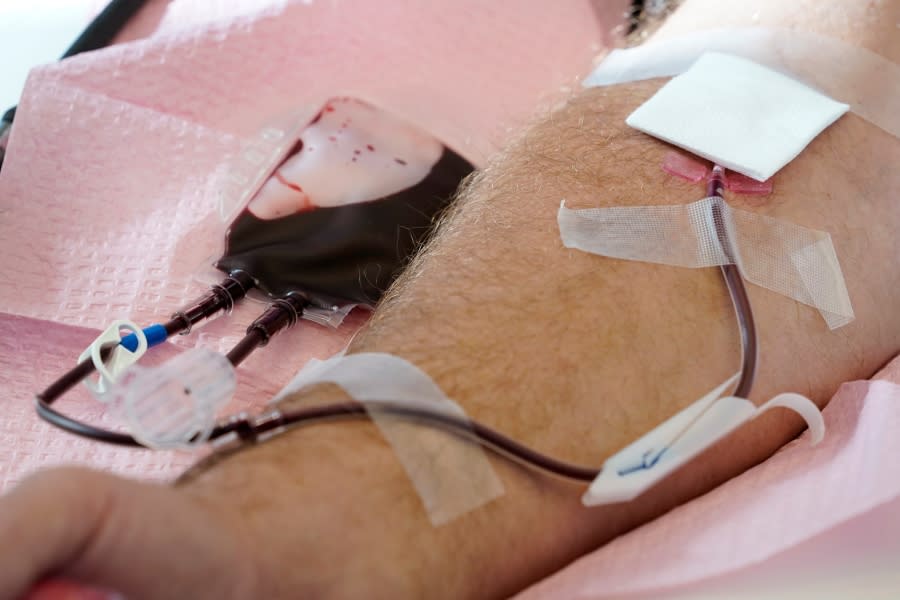FDA drafts new ‘gender-inclusive’ guidance on blood donation eligibility, HIV risk reduction

- Oops!Something went wrong.Please try again later.
The Food and Drug Administration (FDA) has issued draft guidance to change its policies on donating blood, moving away from time-based deferrals for men who have sex with men and instead proposing “individual risk-based questions” to reduce the potential spread of HIV through transfusions.
Under current FDA guidelines for donating blood, men who have sex with men are permitted to donate blood after a three-month deferral period in which they abstain from sexual encounters with men. This change was made in 2020, after the previous guidance had mandated a 12-month deferral period.
The new question-based approach would instead ask potential donors about new or multiple sex partners they have had in the past three months. Those who have had a new sexual partner or more than one in that time frame would be deferred if they reported having anal sex.
“Maintaining a safe and adequate supply of blood and blood products in the U.S. is paramount for the FDA, and this proposal for an individual risk assessment, regardless of gender or sexual orientation, will enable us to continue using the best science to do so,” FDA Commissioner Robert Califf said in a statement.
Individuals taking oral medications to prevent HIV will be subjected to a three-month deferral period starting from their last dose, while those receiving injectable PrEP would be subject to a two-month deferral period.
Those who have not had any new sexual partners or more than one in the past three months would be eligible to donate as long as they meet all other criteria.
The deferral policy would stay in place for those who have exchanged sex for money or drugs as well as those who have a history of injecting nonprescription drugs.
The FDA’s draft guidance would put the U.S. in line with other Western countries such as the United Kingdom and Canada.
LGBTQ media advocacy organization GLAAD celebrated the announcement, calling it a step in the right direction.
“These changes are 40-plus years in the making, and are a tremendous leap forward toward elevating science over stigma,” GLAAD President and CEO Sarah Kate Ellis said in a statement.
“The announcement today will ease historic discrimination against LGBTQ Americans, help alleviate the national blood shortage, and opens the door for all eligible LGBTQ people to give blood and save lives. The U.S. moves closer to joining the growing list of countries that already welcome blood donations from gay and bi men without restrictions,” Ellis stated.
The American Red Cross reported its first-ever national blood shortage last year, with stakeholders attributing the scarcity to supply chain issues exacerbated by the COVID-19 pandemic. When the shortage was first declared, the U.S. was experiencing a massive surge in coronavirus cases due to the omicron variant. Sufficient supplies of blood were reached by the spring, according to the Red Cross, thanks to a robust public response.
Regional shortages are ongoing, however. It was reported last week that Arizona’s blood supply is currently the lowest it’s been in a year. Similar shortages have recently been reported in Oklahoma and Washington state.
—Updated Friday at 2:44 p.m.
For the latest news, weather, sports, and streaming video, head to The Hill.

